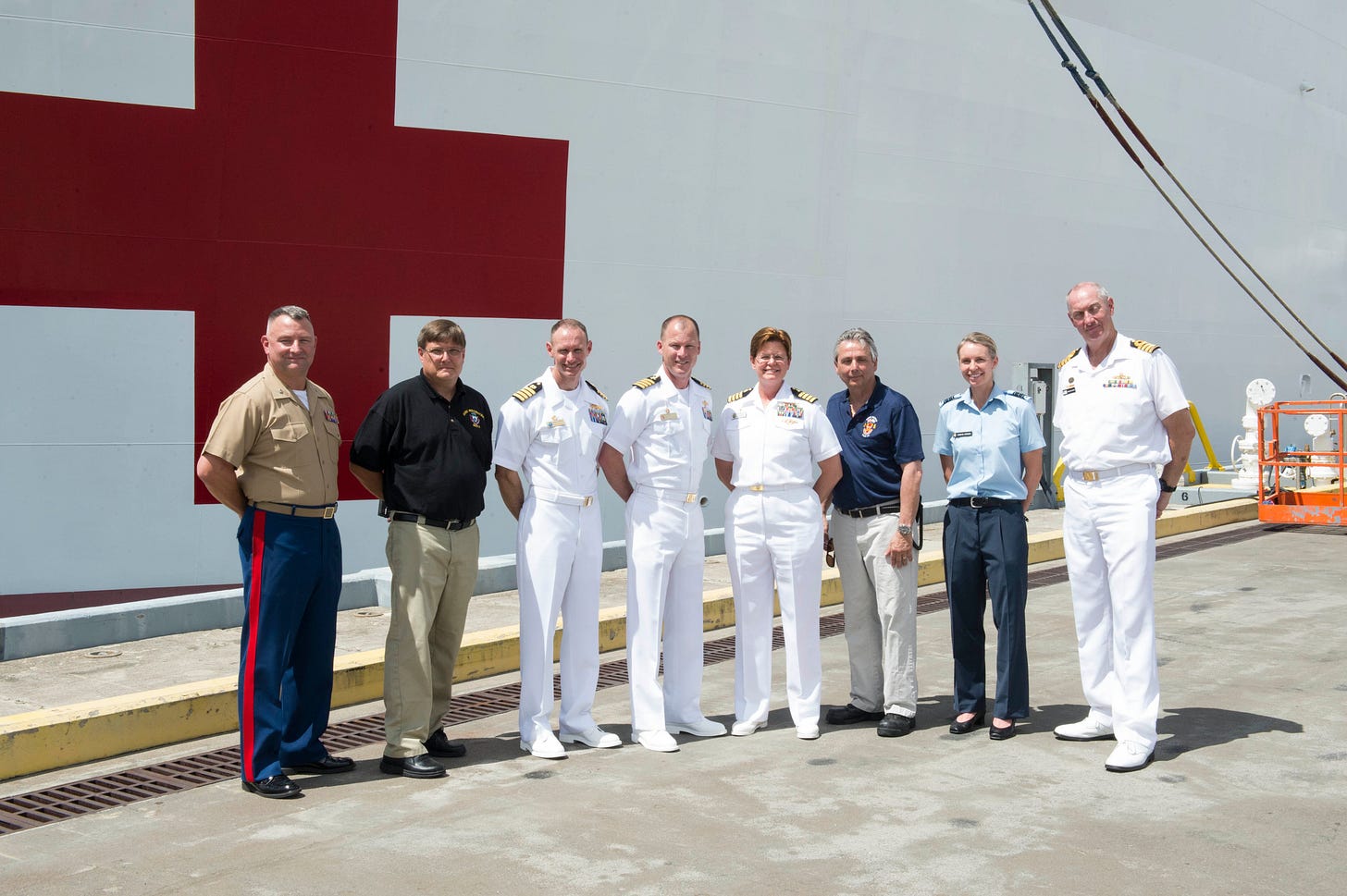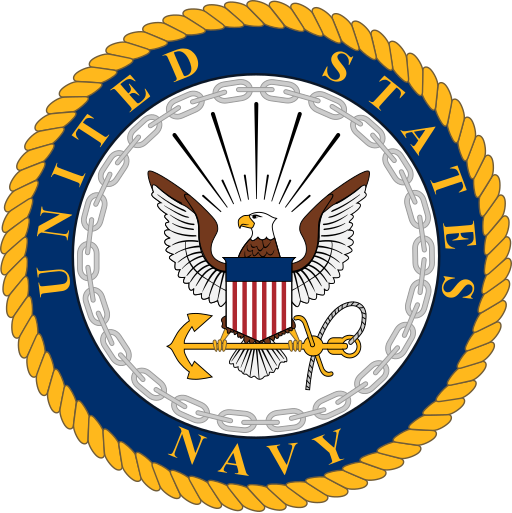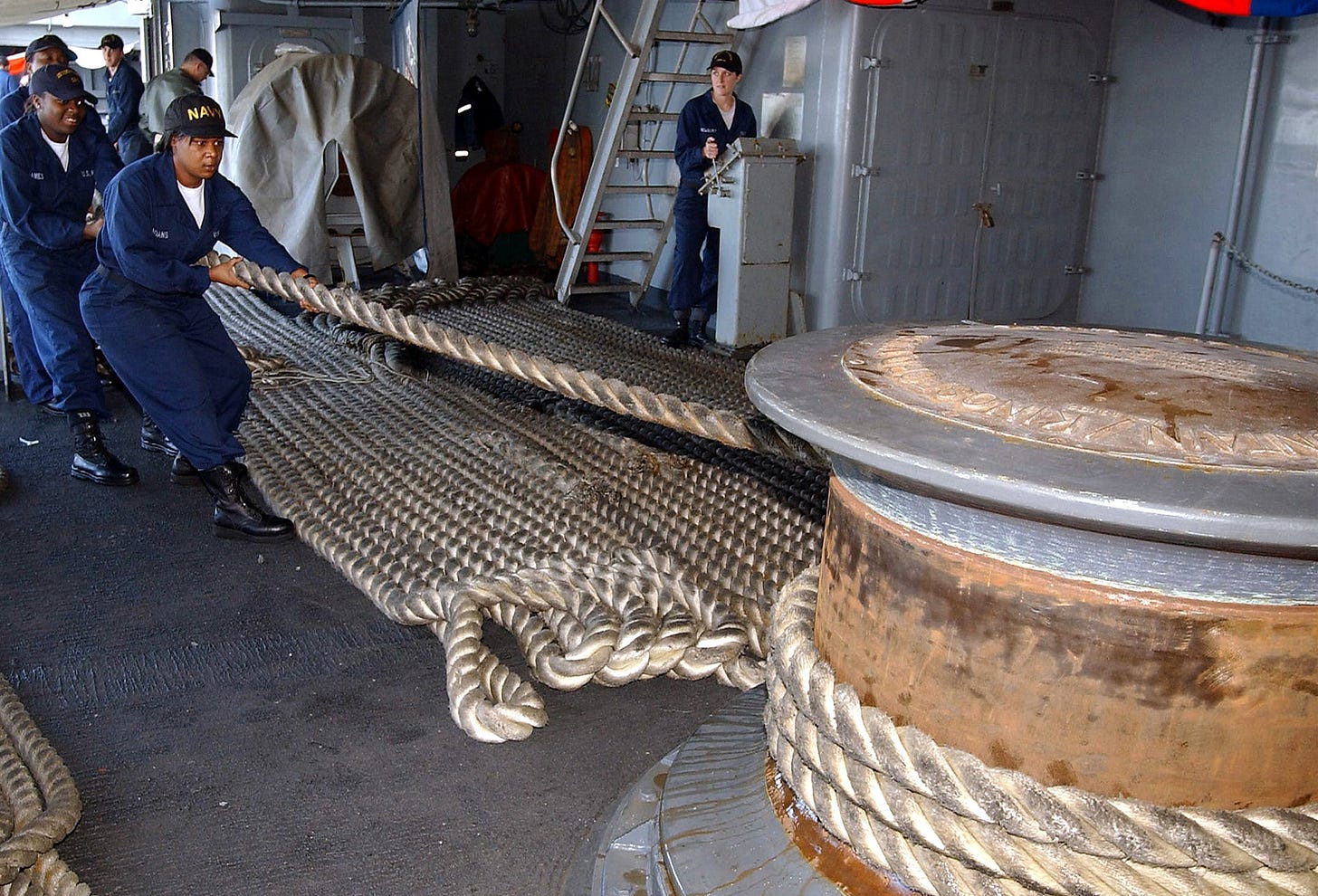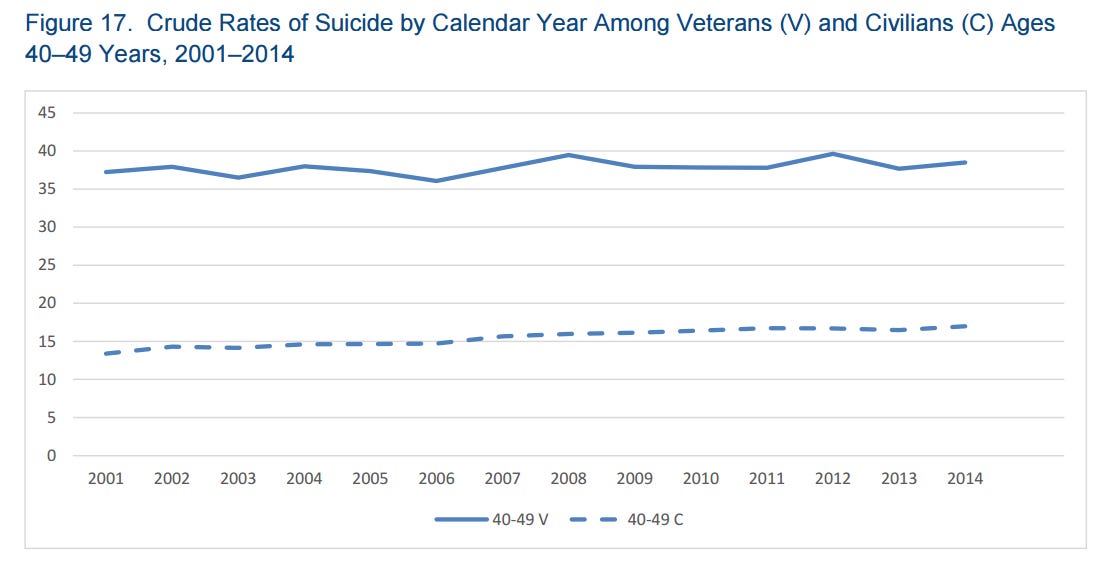(GCV Note:
has served alongside the author and has granted him anonymity to speak frankly about his investigation)The United States Navy, long considered one of the most formidable military forces in the world, has come under scrutiny for its handling of the aftermath when one of its sailors dies by suicide. Sailors who dedicate their lives to the service of their country often face extreme mental health challenges, and the Navy’s response to the surviving families of these individuals has been criticized as inadequate, often compounding the grief and trauma of their loss. After interviewing family members of survivors, the often horrid details of their experiences dealing with the Navy post-suicide are appalling. I have included as many details as possible, being mindful of the surviving families' privacy and anonymity considering ongoing litigation.
A Hidden Crisis: Suicide in the US Navy
Suicide among military personnel has been an ongoing issue across all branches of the U.S. Armed Forces, but it is particularly pronounced within the Navy. Mental health challenges such as PTSD, depression, and anxiety, alongside the unique pressures of military life—long deployments, separation from family, and perhaps most impactful “toxic leadership”—directly contribute to a high suicide rate.
The Navy has made efforts in recent years to address these concerns, adopting the BRANDON Act and introducing wellness programs, suicide prevention campaigns, and mental health resources. However, the response to these issues within the service has often been criticized as inadequate or insufficient. The tragedy is compounded when a sailor dies by suicide, and their family is left to navigate the aftermath—often without adequate support or understanding from the institution they served.
A Broken System: “We don’t need your son’s toothbrush”
One of the most glaring issues for families of sailors who die by suicide is the lack of adequate support following their loved one's death. Surviving families report a distressing trend of poor communication, delayed benefits, and a general feeling of abandonment by the Navy. Many families have noted that while the military is quick to offer condolences, the follow-up support tends to be minimal. The emotional and financial toll is often left to the grieving families, who find themselves battling bureaucracy for the benefits their loved ones earned during their service and ultimately answers to why their family member took their own life. We possess an audio recording of one grieving mother's experience concerning an inventory of personal belongings. The entire conversation was met by a Command Master Chief’s response altogether void of empathy.
Mother- “Please, Sir, I’m not accusing anyone of anything. I just want help finding my son’s stuff.” Command Master Chief-“But you are.”
The conversation with the Command Master Chief continued to be combative, evasive, and without empathy for a grieving mother. As awful as this response was, it is only a glimpse into the deflection, delay, and legal gymnastics Navy officials take to ensure no responsibility is accepted. Families are passed on to never-ending bureaucracy.
When grieving families ask simple questions, they must be met with complete transparency and empathy. The tactic of delaying and deflection is unacceptable. If the Navy were to hold those who contribute to these suicides accountable, perhaps the Navy would have far less of a suicide problem.
For many families, the Navy’s reluctance to acknowledge suicide as a cause of death further complicates the healing process. In some cases, sailors who die by suicide are classified under vague or misleading terms like "non-combat related death," which can prevent surviving family members from receiving full military honors or the benefits tied to such recognition. Additionally, from first-hand experience, the Navy consistently under-reports the accurate suicide numbers. These cases are often categorized as “fell overboard” or “found unresponsive.” This bureaucratic dissonance perpetuates the stigmatization of mental health struggles within the military, implying that suicide is somehow less worthy of recognition than other forms of service-related death.

A Culture that Cultivates Toxicity
Toxic leadership within the U.S. Navy, marked by behaviors such as intimidation, micromanagement, lack of support, and disregard for well-being, can have a devastating impact on Sailors' mental health. The constant pressure, fear, and sense of worthlessness fostered by such leaders can lead to feelings of isolation, anxiety, depression, and, in far too many cases- suicide. It is crucial for Navy leadership at all levels to recognize the signs of toxic behavior and create a culture of support, respect, and accountability to protect the mental health and well-being of our Sailors. For years, the Navy has cultivated a culture of “numbers.” All that matters is the trend line on a spreadsheet, the number of flight hours versus the previous command, being “on time” or, better yet, “early” and “under budget.” The toxic leadership and mathematical gymnastics, only rivaled by Enron and Bernie Madoff, that takes place to achieve these “numbers” is staggering. Nowhere along the line is “human cost” ever accounted for.
This quest for “numbers” drives those in leadership positions to go to extremes to “get numbers” for their following evaluations or awards. In one sailor’s case, they were forced to work 5 hours on- 5 hours off, 24 hours a day, 7 days a week while in port. All to achieve what? Numbers. In this case, it was a matter of a sailor struggling to qualify at their rate. That struggling Sailor was sent to Captain’s Mast, the Navy version of the military’s non-judicial punishment system” and punished with a litany of repercussions. All for struggling to qualify.
However, where along the line did anyone ask the leadership why it was acceptable to subject this Sailor to an utterly unsustainable schedule, all while not deployed, much less at war? Among the crew interviewed for this article, it was well-known within the division that this Sailor was essentially bullied by his Chief Petty Officer into taking his own life. After investigating the incident, the Division Officer and Chief were “sanctioned.” Nothing happened to them but a slap on the wrist and a continuation of the unacceptable status quo.
In a personal case and another example of this quest for “numbers, I was a member of a division that withheld critical repair components so that our “RFI (Ready for Issue) Rate” would look better. All the while, we were depriving our squadrons aboard of needed parts just to unload them all once the deployment and reporting period for an award was over. These parts could have been sent out for overhaul with a rapid replenishment of ready-to-issue parts instead of sitting on a shelf. These cases are all over the Navy. Every sailor who has ever served can tell stories of what is done to make things look better than they are. This attitude fully indicates the larger culture as a whole, that all that matters is the numbers.
In a recently revealed case, a Sailor reached out to their commanding officer requesting mental health support. This Sailor, albeit under criminal charges and facing pre-trial confinement, is no less deserving of mental health support than any other Sailor. His request, including a statement alluding to his impending suicide, was met with “No, you won't. I don’t believe you. Cause if you had these thoughts, you’d have done it by now. I’m calling your bluff. Have a nice Day, we’re dismissed here”. That CO was not only never held accountable, but he was also promoted to Admiral. I suppose he must have hit his “numbers.”
The Strain on Mental Health Resources
The inadequate support is exacerbated by the Navy's overburdened mental health system. While the service has made strides to improve care, the reality is that resources remain limited, especially aboard ships. Sailors often face long waits for appointments, or the stigma surrounding mental health keeps many from seeking help altogether. Even if a sailor does seek help, the lack of follow-up and continuity of care can result in treatment gaps, leaving individuals vulnerable. A Navy Psychologist remarked, “I would never allow anyone around me to be treated the way the Sailors aboard these ships are. It is truly disgusting and disheartening.”
This systemic failure is not lost on the families of those who have died by suicide. Many survivors have expressed frustration with the Navy’s response, particularly regarding posthumous recognition or financial support. Sometimes, families are left to fend for themselves when navigating insurance claims, burial arrangements, and other bureaucratic processes.
The Need for Systemic Change
The Navy’s handling of suicides and the aftermath for the families left behind reflects broader challenges in how mental health and Sailor quality of life are treated within the Navy. More must be done to address the root causes of suicide among its personnel, but it is equally essential that surviving families receive the care, respect, and support they deserve.
I am advocating for a “bill of rights” for all Sailors, particularly aboard ships where longtime “tradition” and culture continues to dictate an abysmal quality of life and work-life balance. As a short example, it is totally “normal” for a Sailor to show up to work, work all day, stand watch through the middle of the night, and then continue to another full day of work. This often means upwards of 48 hours at work without a break…… all while in-port and not at war.
For the Navy to truly honor the service of its sailors, a cultural shift is needed—one that fully acknowledges the reality of human cost, mental health struggles, and suicide within its ranks. This includes offering consistent, compassionate support for Sailors and the families of those lost to suicide, improving communication channels, mandating transparency, and ensuring that benefits and honors are provided without delay or bureaucratic obstacles.
Furthermore, the Navy must prioritize the mental health of its active-duty members, offering them more accessible and practical resources for coping with the stressors of military life. This is not only a matter of individual well-being but of preserving the integrity and strength of the force.

Justice for our Sailors and the Families Affected
The response from the U.S. Navy to surviving families of sailors who die by suicide has been a source of significant criticism. The lack of proper recognition, support, and follow-through leaves grieving families feeling abandoned in their time of greatest need. For the Navy to truly honor those who serve, it must recognize the impact of suicide on both its personnel and their loved ones and take concrete steps to provide the necessary support and recognition. Until such changes are made, the painful legacy of these tragedies will continue to haunt the families left behind.
Until a massive paradigm shift occurs within the Navy’s ranks concerning culture, our Sailors will continue to serve under abusive leadership, poor conditions, poor pay, and, most importantly, dangerous conditions for their mental health. A Sailor's “Bill of Rights” is needed, toxic leaders must be removed, and human costs must be accounted for in all decisions. There is no such thing as free labor.
Please keep all of our servicemembers in your prayers, advocate for Sailors’ rights, and push elected officials to probe the Navy’s suicide crisis.
Sal T. Saylor
13 Year Navy Veteran
The Navy did not respond to a request for comment.
Sal T. Saylor was a sailor and is a hero.







I agree Katherine. This is beyond heartbreaking. I knew of the sexual assault toxic culture but didn't realize there was a suicide/mental health crisis in our Navy as well. I salute the Author who had the courage to speak out and I pray that reforms can be made. I also pray for all our soldiers and sailors who serve us daily. May God give them strength. 💔🇺🇸💙
This is a heartbreaking look inside the Navy's culture. I thank the author for the courage to do the research and write this. My heart goes out to these families.